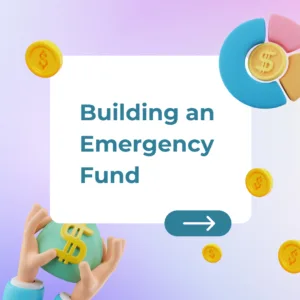

When it comes to managing finances, most individuals face the choice between personal loans and credit cards. Both options offer unique advantages and disadvantages, depending on your financial needs, repayment capacity, and spending habits. This comprehensive guide examines personal loans and credit cards. It helps you determine which option is better for your specific scenario.
You might be planning a big-ticket purchase. You could be consolidating debt or addressing an emergency expense. Understanding these financial tools is essential to making informed decisions.
Understanding Personal Loans
What Is a Personal Loan?
A personal loan is a fixed amount of money borrowed from a financial institution. It must be repaid over a specified period through fixed monthly installments. These loans are unsecured, meaning they don’t require collateral, and are typically used for purposes like:
- Debt consolidation
- Medical emergencies
- Home renovations
- Education expenses
- Large purchases
Key Features of Personal Loans
- Fixed Loan Amount: Borrow a specific amount based on your needs.
- Fixed Interest Rates: Most personal loans have a fixed interest rate, ensuring predictable payments.
- Flexible Tenure: Repayment periods can range from 1 to 5 years or more.
- No Collateral Required: Most personal loans are unsecured, eliminating the need for assets as collateral.
- One-Time Disbursement: Loan amount is disbursed in a lump sum.
Understanding Credit Cards
What Is a Credit Card?
A credit card allows you to borrow money up to a pre-approved limit to make purchases or withdraw cash. Unlike personal loans, credit cards are revolving credit facilities, meaning you can reuse the credit limit as you repay your outstanding balances.
Key Features of Credit Cards
- Revolving Credit: Borrow and repay repeatedly within your credit limit.
- Flexible Payments: Pay the full balance or a minimum due amount each month.
- Rewards and Benefits: Earn points, cashback, or miles on spending.
- Higher Interest Rates: Interest is charged on unpaid balances after the due date.
- No Fixed Loan Term: Use and repay as needed without a defined tenure.
Comparison Table: Personal Loans vs. Credit Cards
| Aspect | Personal Loan | Credit Card |
|---|---|---|
| Loan Type | Fixed loan amount | Revolving credit limit |
| Repayment | Fixed EMIs over a set tenure | Flexible payments, minimum due or full |
| Interest Rate | Lower (10-16% p.a.) | Higher (18-48% p.a.) |
| Tenure | Defined (1-5 years or more) | No fixed tenure |
| Collateral Required | No | No |
| Processing Time | Longer (days to weeks) | Instant (if card is already issued) |
| Usage Flexibility | One-time disbursement | Can be reused within credit limit |
| Benefits | Lower interest, suitable for big expenses | Rewards, cashback, ease of use |
| Best For | Large planned expenses, debt consolidation | Everyday expenses, small purchases |
Advantages of Personal Loans
- Lower Interest Rates: Personal loans generally offer lower interest rates than credit cards, making them cost-effective for large borrowings.
- Predictable Payments: Fixed monthly installments help borrowers plan their finances better without surprises.
- Larger Loan Amounts: Personal loans allow access to higher funds, suitable for significant expenses like weddings, home renovations, or medical bills.
- Consolidation of Debt: You can consolidate multiple high-interest debts into a single loan with a lower interest rate.
- No Spending Temptations: Since the loan amount is disbursed as a lump sum, there’s less temptation to overspend compared to credit cards.
Advantages of Credit Cards
- Convenience: Credit cards are widely accepted and can be used for online and offline transactions worldwide.
- Rewards and Cashback: Earn rewards, cashback, or travel points on every transaction, maximizing value.
- Instant Access to Credit: Credit cards offer immediate access to funds within the approved limit, ideal for emergencies.
- Interest-Free Period: Most credit cards offer an interest-free period of 20-50 days, allowing you to avoid interest if you pay the full balance on time.
- Builds Credit Score: Regular and timely credit card payments improve your credit score over time.
Disadvantages of Personal Loans
- Processing Time: Personal loans require more documentation and take longer to process compared to credit cards.
- Fixed Repayments: EMIs must be paid every month, regardless of your financial situation.
- Limited Flexibility: You can’t borrow additional funds unless you apply for a new loan.
Disadvantages of Credit Cards
- High Interest Rates: Interest rates on unpaid balances can be exorbitant, leading to debt accumulation.
- Minimum Payment Trap: Paying only the minimum due can lead to a debt spiral as the remaining balance accrues interest.
- Overspending Risk: The ease of use and revolving credit nature can encourage unnecessary spending.
When to Choose a Personal Loan
- Debt Consolidation Personal loans are ideal for consolidating high-interest debts into one manageable EMI.
- Large Expenses If you need funds for significant expenses like weddings, medical bills, or home improvements, personal loans are a better option.
- Long-Term Needs For expenses requiring extended repayment periods, personal loans offer better terms.
When to Choose a Credit Card
- Short-Term Needs For smaller, immediate expenses, credit cards provide instant access to funds.
- Everyday Purchases Use credit cards for routine expenses like groceries, dining, and fuel to earn rewards and cashback.
- Emergencies Credit cards are a handy tool for unplanned expenses, provided you repay the balance promptly.
Combining Personal Loans and Credit Cards
In some cases, combining personal loans and credit cards can be an effective financial strategy. For instance:
- Use a credit card for short-term needs or emergencies.
- Consolidate outstanding credit card debt with a personal loan to benefit from lower interest rates.
Conclusion
Both personal loans and credit cards have their own set of advantages and drawbacks. The choice between them depends on your financial goals, repayment capacity, and the nature of your expense. Personal loans are better suited for large, planned expenses and debt consolidation, while credit cards offer convenience and rewards for everyday purchases and emergencies.
By understanding the differences and evaluating your needs, you can make an informed decision to achieve financial stability and success.
Remember, responsible usage of any financial tool is key to avoiding debt traps and building a strong credit profile.




